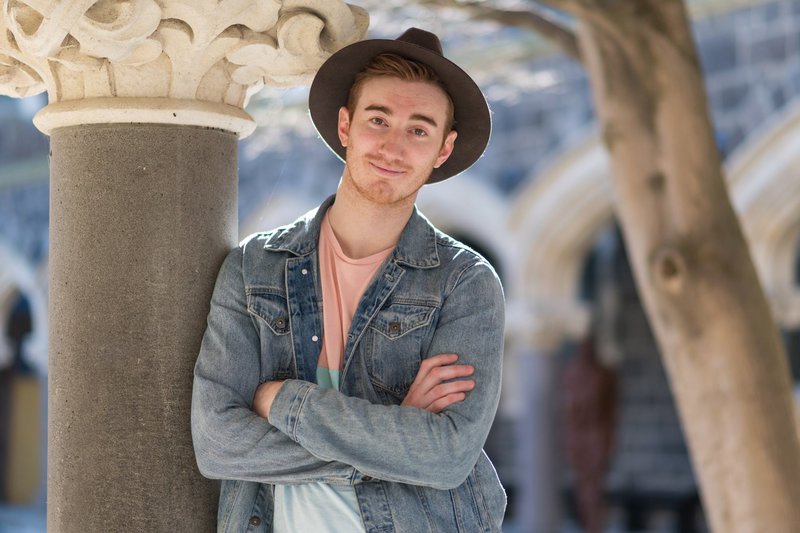We partnered with Humans of Ōtautahi to profile several local men on what being "Manly As" meant to them. Meet Jeremy:
“My journey with masculinity started early as a very effeminate young boy. In my late teens, coming out as gay, part of that is to explore those boundaries of your feminine and masculine qualities. I think coming into my adult life it took me a little longer to relax into and accept the masculine traits in myself that I like. I am pretty relaxed, it takes a lot to fluster me, I am very low maintenance. I pride myself on being a very gentle man; but at the same time, I have really appreciated my own strength in the last few years. I think for me as a gay man, I had to accept that it is just me and not what defines me. Now I don’t think that when I walk into a room that everyone is going to be able to look at me and go, that man is a gay man. That for me is where I found the balance, the crux of it is: I am just a man.
I still pride myself on being a bit of a bloke, sometimes. I taught my partner how to change the oil in his car the other day. What we think of being quintessentially blokey, I don’t tick all those boxes, but I do tick a couple which makes me feel relaxed with it. I am a huge believer in being your organic self, whoever that i and I think we all have that journey in finding ourselves and for some, it is a lot harder than others, depending on what environment you come from. I think every man should be able to find a version himself that is ok for him. I think we are breaking away from that very rigid stereotype about what makes a man and what makes a bloke. A lot of my friends are feeling that they can just relax and be themselves. That means showing vulnerability, being a bit more sensitive, being able to talk about your feeling. Those are things all of us are going to struggle with at some point but it doesn’t need to be specific to being a male or a female.

I grew up in the church, my uncle was the pastor of our church. Growing up in that lifestyle sets really clear expectations of who you are and what your life will be in order to be successful. For me, that made me feel like I was not going to be the man that people thought I should be. I didn’t have men in my life who weren’t married with children or part of the church. The quintessential family man, I learnt at that time, was not going to manifest in my life. Not the way that everyone thought it would and that I had thought it would. Then I realized I can be whatever man I want to be, my life is my life. What I want it to look like in ten years time is up to me and me alone. It is a lot of coming back around in terms of those expectations that I had on myself, as a child, about what a man should be and what this life should be. Being able to say no, the parts of that life that was still important to me and are still important to me can still be in my life. I don’t need to have a wife and three children; I can have a husband and a child and three dogs or whatever I want that to be.
You can’t quantify a whole population of people and I think we are leaning towards the identification of yourself as yourself. I think that is a huge thing for the global population: that we are who we are. That the masculine and feminine are no longer binaries that we live our lives by. I think there are beautiful men living in this city that don’t yet know how to celebrate their finest qualities because they still try to be who they think they need to be. They don’t have to be that, they just don’t, they get to be whoever.”